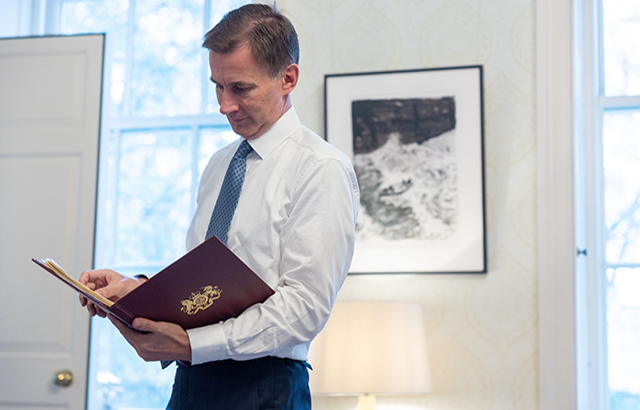Inheritance tax (IHT) receipts jumped to £5.7bn in the months from April to December 2023, HMRC has reported.
The £400m rise on the total raked in during the same period last year continues an upward trend in the amount of tax levied on the assets of the deceased.
The average bill is on course to be £239,000 in the current tax year with around 30,000 families having to pay up, according to numbers run by Wealth Club. This represents an 11.5% increase from the £214,000 average paid three years ago.
The figures will only increase pressure on Chancellor Jeremy Hunt and his government colleagues to make changes to IHT in the Budget on 6 March.
See also: Premier Miton’s David Jane: Reframing income as an output rather than a style
It remains unclear as to whether the government will act though, as they are reportedly concerned it would be portrayed as a tax cut for the wealthy.
Nicholas Hyett, investment manager at Wealth Club, commented: “The government’s income from death duties is going up. That makes changes to IHT policy a careful balancing act.
“Cutting rates might win votes, since many see IHT as an unjust grab for money that’s already been taxed once. But the revenue earned is playing an important part in the government’s spending programme, and a shortfall would need to be made up somewhere else.”
Stacey Love, tax and estate planning specialist at Canada Life, said: “It’s clear from the data that IHT receipts are on a trajectory to break all previous records. While records might be broken, in reality IHT yields far less for the Treasury than other wealth taxes, for example capital gains tax.
“No doubt the rumour mills will go into over-drive ahead of the Spring Budget around the future of IHT, but one thing is clear, as of today, IHT isn’t just a tax on the wealthy, due to rising house prices and frozen tax bands.
“While we wait to see, what, if anything the Chancellor has up his sleeve around the future of IHT, early planning can help reduce the liability to this tax by making full use of the available exemptions and gifts to trusts.”
See also: Why investors need to take outlooks with a pinch of salt
Laura Hayward, tax partner at Evelyn Partners, added: “IHT is harvesting more in revenue than was ever forecast as rising house prices and growth in investment assets have boosted the value of estates over the last couple of decades.
“This has drawn more estates, and more assets in each liable estate, over the threshold at which IHT kicks in, which has been frozen at £325,000 since April 2009. Modest property downturns as we have seen in the last year or so will do little to dent this trend.
“In recent years there has also been a Covid effect on mortality which has further increased the overall IHT take.
“Despite being paid by a small proportion of estates, IHT is widely unpopular and continues to attract attention as one of the taxes the Chancellor could look to cut at his spring Budget, in an effort to boost the Conservatives’ electoral outlook.”








